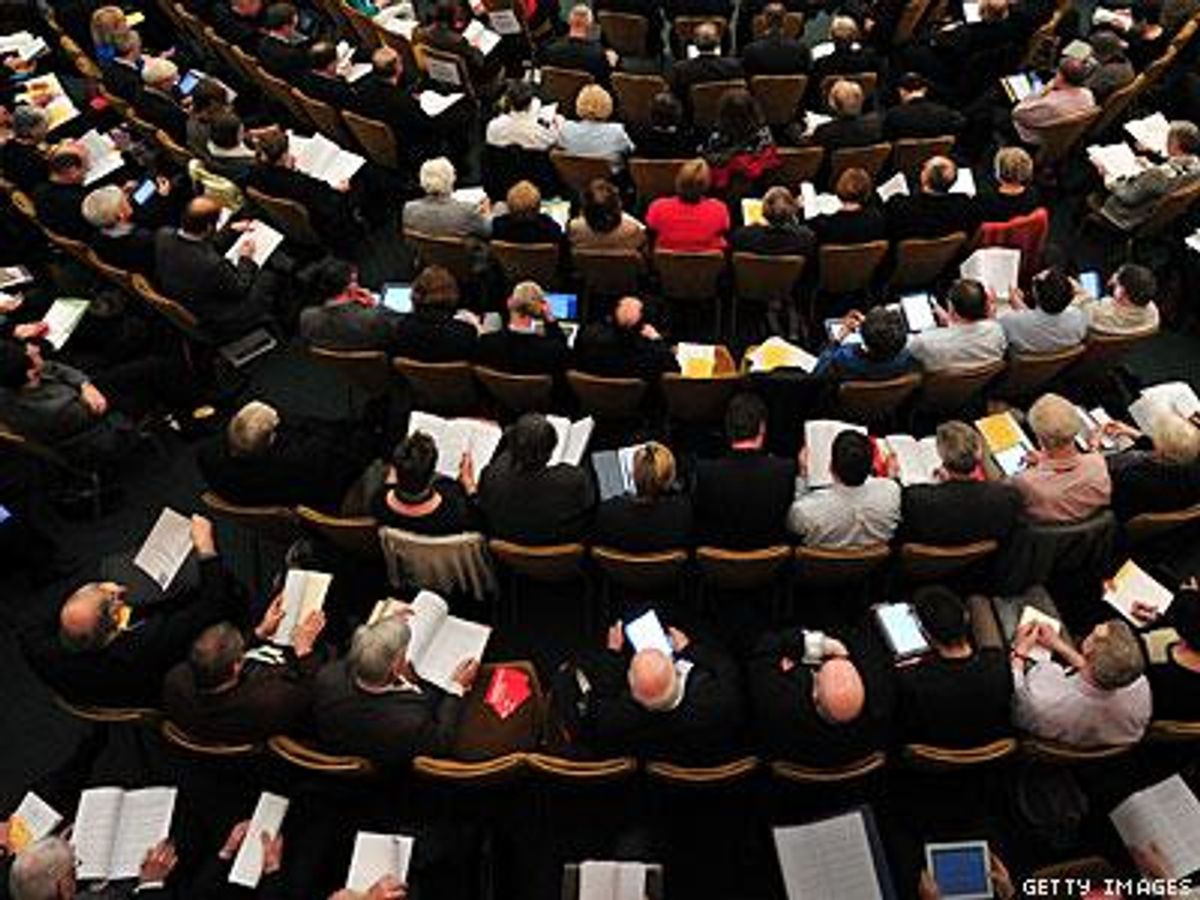Just days after the head of the Church of England warned its bishops that opposing LGBT rights would paint the church in a bigoted light, the bishops adopted new guidelines saying priests should not bless same-sex unions.
With same-sex marriages set to begin in March in England and Wales, the House of Bishops drafted new guidelines that warn "blessing should not be provided" to same-sex weddings but suggests that priests "should respond pastorally and sensitively in other ways."
The guidelines, posted on the church's website Saturday, appear to be somewhat at odds with a bishops' report issued last year, which said priests "should be free to mark the formation of a permanent same-sex relationship in a public service," although they would not be obligated to do so. The Saturday posting states that an "informal kind of prayer, at the request of the couple, might be appropriate," with "the assumption that any prayer will be accompanied by pastoral discussion of the church's teaching and their reasons for departing from it."
Individuals married to a person of the same gender will continue to be barred from ordination, and the rules also prohibit "someone in holy orders" from entering a same-sex union.
Last week Justin Welby, archbishop of Canterbury and spiritual head of the world's 77 million Christians in communion with the Anglican Church, warned that opposition to LGBT rights would have a negative impact on how some view the faith.
Speaking to the synod of bishops, Welby noted the "a great fear that our decisions will lead us to the rejection of LGBT people, to irrelevance in a changing society, to behavior that many see akin to racism."
The 58-year-old former oil executive also acknowledged the fears of some church leaders that supporting LGBT people could "lead to the betrayal of our traditions, to the denial of the authority of scripture, to apostasy." Welby called for "a way forward" that will "overcome fear."
The LGB&TI Anglican Coalition said in a statement that it was "appalled" by the new guidelines, "especially in the light of the Archbishop of Canterbury's presidential address in which it was stated that differing views should be accepted in a spirit of 'good disagreement.' In this document we see no acceptance of disagreement at all, but instead a heavy-handed and legalistic imposition of discipline."
Writing in The Guardian, Rev. Richard Haggis, a gay Anglican priest, said that he and his colleagues "long for the sort of union that could be marked by a public ceremony and decent and proper civil rights."


















































































Fans thirsting over Chris Colfer's sexy new muscles for Coachella